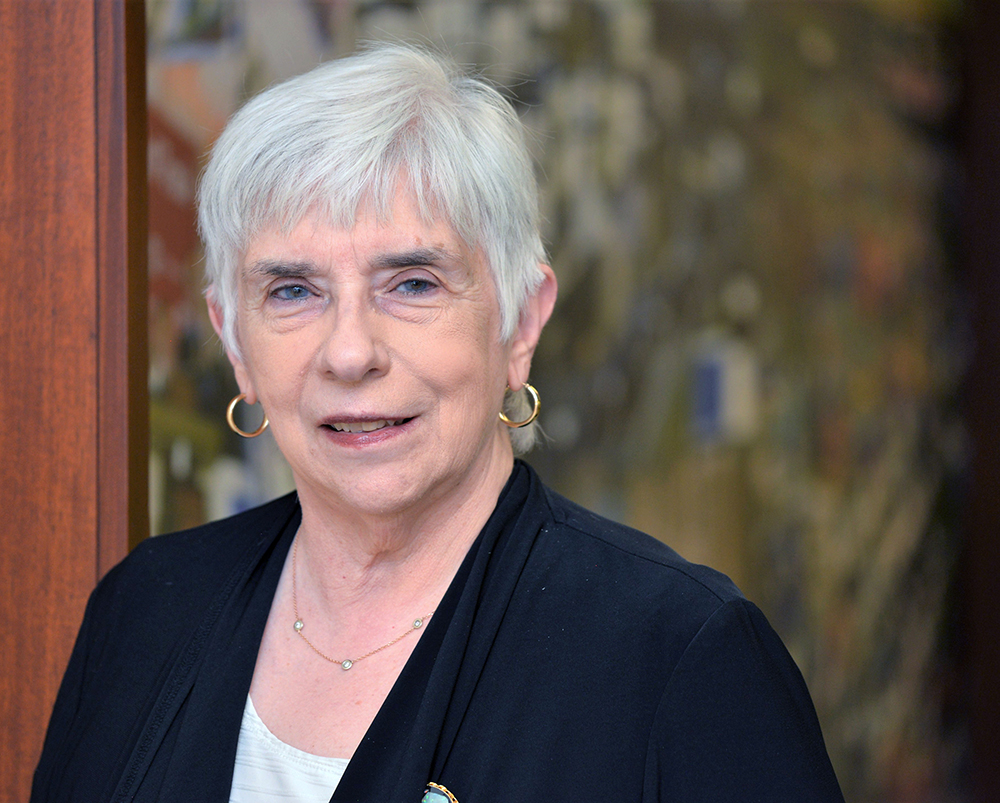 Professor of Management and Entrepreneurship Helen LaVan
Professor of Management and Entrepreneurship Helen LaVan
Professor of Management and Entrepreneurship Helen LaVan is celebrating a special milestone this academic year – 50 years on DePaul University’s faculty.
LaVan began teaching as an instructor at the Driehaus College of Business in December 1969 after earning her MBA at DePaul and serving as the business college’s first woman graduate teaching assistant. Upon completion of her PhD at Loyola University Chicago, LaVan moved up the tenure track to become a professor specializing in human resources. In this Q&A, LaVan reflects on her five decades at DePaul.
Where did you grow up and why did you decide to attend DePaul as a student?
I grew up in Chicago. In fact, I was born in a hospital that is no more than five miles from our Loop Campus. I came to DePaul because I wanted to be the best human resource manager I could be. I felt my undergraduate degree in human resource management did not give me enough HR skills nor did it give me a sufficient understanding of the total organization. I needed a night program in the Chicago area so that I could work in HR (at retailer Montgomery Ward) during the day.
What about DePaul made you want to join the business faculty?
If I had to state one factor, it would be the visionary perspectives of Dr. Dominic Parisi, (the late former) chair of the Department of Management, who helped develop several academic disciplines at DePaul. When I first came to DePaul, business communications was taught in the Department of Management, now there is a whole College of Communications. Public sector management was taught in the Department of Management, now there is a whole school (School of Public Service). Business ethics was taught in the Department of Management, now there is a significant component of business ethics teaching in the departments of philosophy and religion as well as the business college.
What are some of the highlights of your 50-year tenure on the business faculty? What are you most proud of?
I am proud to state that I am one of the originators of the Master of Science in Human Resources program. Hundreds, perhaps thousands of students, have completed this program. Throughout my years at DePaul, I have taught human resource management and career development classes. I estimate that I have taught 10,000 students, including students going on to be faculty members in their own right and high-ranking professionals in a variety of sectors in the business community. I would like to think that the students have gone on to make significant contributions to managing the human resources in their workplaces.
I have received a few different internal awards, including the Spirit of Inquiry, a Wicklander fellowship in business ethics and a faculty service award. My position at DePaul enabled me to gain the recognition I needed to achieve officerships in local and national professional organizations, including the Labor and Employment Relations Association and Academy of Management.
How has teaching and research in your field changed over the years?
I directed internships in the Department of Management for over 10 years, and we are now only beginning to realize that having an internship is more important than many other qualifications. I also have taught online for more than 10 years. Initially there was some concern that online learning is not congruent with the personalism of Vincentian values. I think it is more congruent because each student receives individualized attention and is individually accountable for his or her own learning. I also have taught internationally in a variety of programs, including in Hong Kong and Bahrain. I have recently become more interested in business ethics research, especially involving justice and corporate social responsibility, and in the use of big data analytics as a methodology.
What do you look forward to at DePaul in 2020 and beyond?
I look forward to on-going development of our curriculum so that it is integrated across the departments and to the university to provide students with both a more intensive career-orientation and a service orientation.
Learn more about DePaul’s: